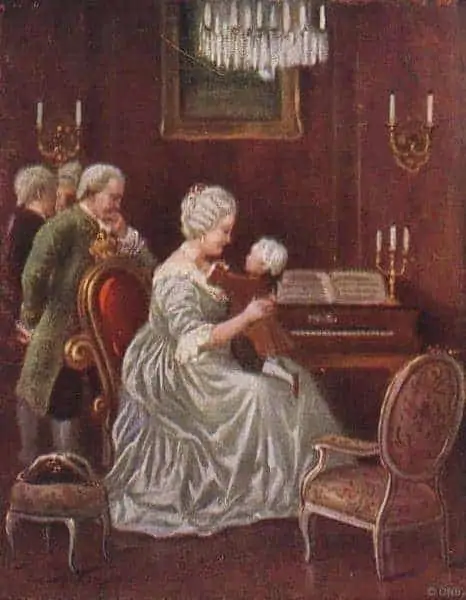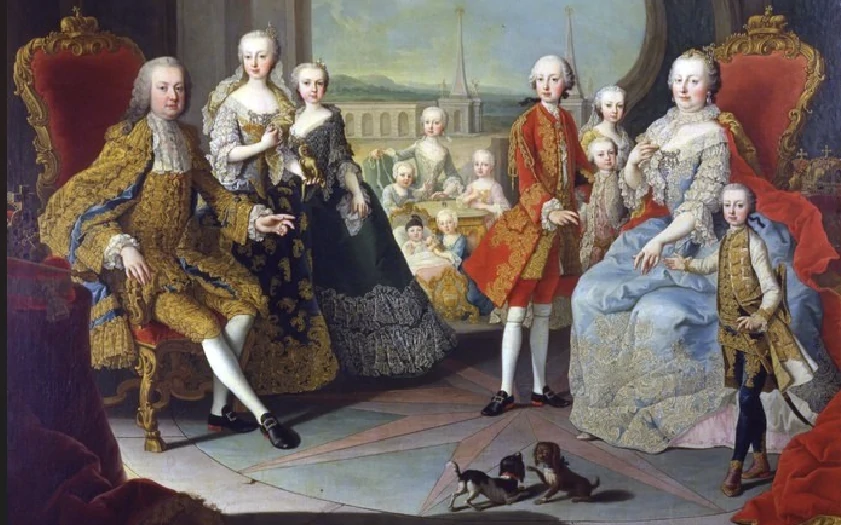At a time of many child prodigies, Leopold Mozart, prince-archbishop’s court violinist and court composer from Salzburg, was also blessed with two hopeful children.
Ten-year-old Maria Anna and six-year-old Wolfgang were to perform at the imperial court in Vienna to make them famous as “child prodigies”.
The first concert tour took him to the Bavarian court in Munich in January 1762, followed by another from September to December 1762 via Passau and Linz to Vienna.
On October 13, 1762, the imperial couple Maria Theresa and Franz I Stephan as well as twelve archdukes and archduchesses listened to her performance on the piano and violin in the Hall of Mirrors at Schönbrunn Palace. The self-confident 6-year-old Wolfgang enchanted everyone with his playing. Court composer Christoph Wagenseil recognized: “You are a real musician!”
Anecdotes say that the Mozart children played with the archdukes and archduchesses after the concert and romped through the Hall of Mirrors. “Wolferl jumped onto the Empress’s lap, got her around the neck and kissed her righteously. In short, we were with her from three o’clock to six o’clock,…” wrote Leopold Mozart to his host and patron Lorenz Hagenauer in Salzburg.
For their performance, Nannerl and Wolfgang not only received 100 gold ducats (450 guilders, a horse cost about ten guilders, a simple carriage about 60 guilders) as a fee, but also two discarded dresses from archdukes. From then on, these sumptuously embroidered gala dresses served as stage clothes for the Mozart children.
Nine years later, Maria Theresa knew little about the “Compositeur”. She advised her son Ferdinand Karl not to take this Salzburg family of musicians into service: “. . . I don’t see why and I don’t think you need a composer or such useless people . . .” On October 15, 1771, the young 17-year-old Archduke Ferdinand married Maria Beatrice d’Este in Milan. For this festive occasion, the 15-year-old Mozart wrote the opera Ascanio in Alba at the bride’s request, which was premiered in Milan. The young wedding couple were delighted. Ferdinand Karl promised Wolfgang Amadeus Mozart a position as court composer. But Maria Theresa had the last word.



